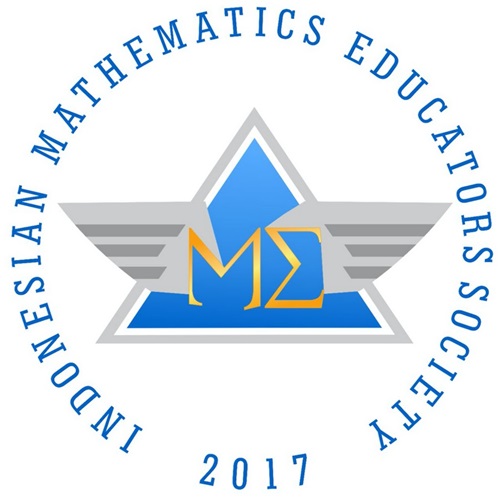Students’ Understanding Of Mathematical Concepts Through The Guided Inquiry Learning
DOI:
https://doi.org/10.22437/edumatica.v9i02.7260Abstract
Abstract
The ability to understand concepts is very important and becomes the basis for supporting the solving of mathematical problems. The connection between one concept and another concept and one topic with another topic is a characteristic of learning mathematics. The relationship requires that each student must have the ability to understand the concepts well, but it cannot be denied that the ability to understand mathematical concepts is still low, as happened to theLangke Rembong 4Junior High School students. Learning innovation needs to be done to achieve a good understanding of concepts. This study aims to compare the understanding ability of mathematical concepts of students who follow a guided inquiry learning model with students who take direct learning. The research design uses Posttest only control group design. The population is all eighth grade students of Langke Rembong 4 Junior High School, totalling230 students. Sampling is done by random sampling with equality test between classes.It is then obtained class VIII A as the experimental class and class VIII C as the control class. Data collection uses tests in the form of description questions. Data analysis uses t-test with normality test and homogeneity test for the assumptions. The results show that the students who follow the guided inquiry learning have higher understanding of mathematical concepts than those who are taught with direct learning model.
Keywords: inquiry, understanding of mathematical concepts
Downloads
References
Creswell, J. W. (2012). Educational Research: Planning, Conducting, and Evaluating Quantitative and Qualitative Research (FOURTH EDI; M. Buchholtz, ed.). Boston.
Fraenkel, J. R., & Wallen, N. E. (2008). How to Design and Evaluate Research in Education (SEVENTH ED; M. Ryan, ed.). San Francisco: Beth Mejia.
Fuadi, R., Johar, R., & Munzir, S. (2016). Peningkatkan Kemampuan Pemahaman dan Penalaran Matematis melalui Pendekatan Kontekstual. Jurnal Didaktika Matematika, 3(1), 47–54.
Gumilar, S., Ismail, A., Budiman, D. M., & Siswanto, S. (2018). Inquiry instructional model infused blended experiment : helping students enhance critical thinking skills. International Conference on Mathematics and Science Education (ICMScE 2018), 1–6. https://doi.org/10.1088/1742-6596/1157/3/032009
Gunur, B., Makur, A. P., & Ramda, A. H. (2018). Hubungan antara kemampuan numerik dengan kemampuan pemecahan masalah matematis siswa di pedesaan. MaPan : Jurnal Matematika Dan Pembelajaran, 6(2), 148–160.
Hadi, S., & Kasum, M. U. (2015). Pemahaman konsep matematika siswa smp melalui penerapan model pembelajaran kooperatif tipe memeriksa berpasangan (pair checks). EDU-MAT Jurnal Pendidikan Matematika, 3(April), 59–66.
Jeheman, A. A., Gunur, B., & Jelatu, S. (2019). Pengaruh Pendekatan Matematika Realistik terhadap Pemahaman Konsep Matematika Siswa Mosharafa : Jurnal Pendidikan Matematika Mosharafa : Jurnal Pendidikan Matematika. 8, 191–202.
Kirschner, P. A., Sweller, J., & Clark, R. E. (2006). Work : An Analysis of the Failure of Constructivist , Discovery , Problem-Based , Experiential , and Inquiry-Based Teaching. EDUCATIONAL PSYCHOLOGIST, 41(2), 75–86.
Kurniashih, R., Syarifuddin, H., & Darmansyah. (2019). The Influence of Guided Inquiry Learning Model on Students ’ Mathematical Problem Solving Ability. Advances in Social Science, Education and Humanities Research, 178, 358–362.
Kusnadi, D., Tahmir, S., & Minggi, I. (2014). Implementasi kurikulum 2013 dalam pembelajaran matematika di sma negeri 1 makassar. Jurnal Matematika Dan Pembelajaran, 2(1), 123–135.
Masitoh, I. D., & Ariyanto, J. (2017). Pengaruh Model Pembelajaran Inkuiri Terbimbing terhadap Kemampuan Berpikir Kritis Siswa Kelas X MIA pada Materi Pencemaran Lingkungan di Surakarta. Journal Bioedukasi. Universitas Sebelas Maret, 10(1), 71–79.
Mensah-Wonkyi, T., & Adu, E. (2016). Effect of the inquiry-based teaching approach on students ’ understanding of circle theorems in plane geometry. African Journal of Educational Studies in Mathematics and Sciences, 12, 61–74.
Ningsih, S. Y. (2017). Peningkatan Kemampuan Pemahaman Konsep Siswa Melalui Pendekatan Matematika Realistik Di SMP Swasta Tarbiyah Islamiyah. Mes (Journal of Mathematics Education and Science), 3(1), 82–90.
Ningsih, Y. L. (2016). Kemampuan Pemahaman Konsep Matematika Mahasiswa Melalui Penerapan Lembar Aktivitas Mahasiswa (LAM) Berbasis Teori APOS Pada Materi Turunan. Edumatica, 06(April), 1–8. https://doi.org/10.1063/1.4944618
Purwasih, R. (2015). Peningkatan Kemampuan Pemahaman Matematis Dan Self Confidence Siswa Mts Di Kota Cimahi Melalui Model Pembelajaran Inkuiri Terbimbing. Jurnal Didaktik Matematika, 9(1), 16–25.
Qomaliyah, E. N., Sukib, S., & Loka, I. N. (2018). Pengaruh Model Pembelajaran Inkuiri Terbimbing Berbasis Literasi Sains Terhadap Hasil Belajar Materi Pokok Larutan Penyangga. Jurnal Pijar Mipa, 11(2), 105–109. https://doi.org/10.29303/jpm.v11i2.111
Rahmani, Halim, A., & Jalil, Z. (2016). Penerapan Model Pembelajaran Inkuiri Terbimbing untuk Meningkatkan Keterampilan Proses Sains (KPS) Siswa Sekolah Dasar. Jurnal Pencerahan, 10(02), 74–80. https://doi.org/10.1098/rsta.2012.0307
Ramdhani, M. R., Widiyastuti, E., & Subekti, F. E. (2016). Analisis Kemampuan Koneksi Matematis Siswa Kelas VII SMP Negeri 1 Kembaran. Prosiding Seminar Matematika Dan Pendidikan Matematika, (November), 403–414.
Risnawati, Mz, Z. A., & Mardianita, W. (2014). Influence Of Cooperative Learning Models Of Stad With Approach Realistic Mathematics Education ( RME ), Pairs Check , And Inquiry Againts Understanding Of Concept And Problem Solving Of Mathematics. Proceeding the 2nd SEA-DR, (978), 263–271.
Sularso, Sunarno, W., & Sarwanto. (2017). Understanding students ’ concepts through guided inquiry learning and free modified inquiry on static fluid material. International Journal of Science and Applied Science:, 2(1), 363–367. https://doi.org/10.20961/ijsascs.v2i1.16746
Tandililing, E. (2013). Pengembangan Kemampuan Koneksi Matematis Siswa Melalui Pendekatan Advokasi Dengan Penyajian Masalah Open-Ended Pada Pembelajaran Matematika. Makalah Dipresentasikan Dalam Seminar Nasional Matematika Dan Pendidikan Matematika Dengan Tema â€Penguatan Peran Matematika Dan Pendidikan Matematika Untuk Indonesia Yang Lebih Baik" Pada Tanggal 9 November 2013 Di Jurusan Pendidikan Matematika FMIPA UNY, 203–210. UNY.
Trianto. 2011. Model-model Pembelajaran Inovatif Berorientasi Konstruktivistik. Jakarta: Prestasi Pustaka.
Wu, S., & Lin, F. (2016). Inquiry-Based Mathematics Curriculum Design for Young Children-Teaching Experiment and Reflection. 12(4), 843–860. https://doi.org/10.12973/eurasia.2016.1233a
Downloads
Published
Versions
- 2019-11-18 (1)
- 2019-11-18 (1)






